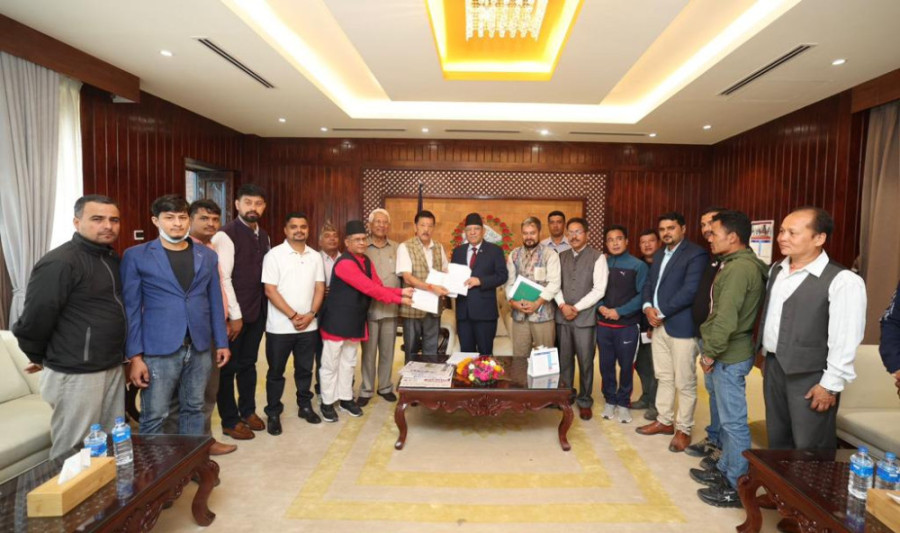National
Nuwakot lawmakers draw prime minister’s attention to plights of Banchare Danda locals
They hand over a memorandum to the prime minister demanding the government implement past agreements.
Post Report
Lawmakers from Nuwakot on Saturday drew the attention of Prime Minister Pushpa Kamal Dahal over the hardship faced by Banchare Danda locals due to haphazard waste disposal at the landfill site.
A team of elected representatives and locals handed over a memorandum to the prime minister demanding that the government implement past deals and give more priority to the development of the area.
A team of the Nepali Congress lawmakers Arjun Narsingh KC and Sita Mijar, the CPN (Maoist Centre) parliamentarians Hit Bahadur Tamang and Bimala Subedi, Congress leader Jagadishwar Narsingh KC along with district leaders and local representatives reached the prime minister’s official residence Baluwatar with the demands.
They also demanded the blacktopping of the Tinpiple-Pipaltar road section considered the backbone for Nuwakot’s development. They said that the government has allocated the budget to blacktop only half of the section and demanded that arrangements be made to blacktop the entire road section as soon as possible.
During the meeting with the prime minister, lawmaker KC warned of staging a hunger strike at the federal Parliament building if the government fails to resolve the issues related to the landfill and road.
“The negligence by the government towards the condition of the district that lies close to the federal capital is intolerable. The state should take responsibility for the problems caused by piling of waste at the landfill.”
In July, Banchare Danda and Sisdole locals had obstructed garbage trucks from reaching Banchare Danda for a couple of days, accusing the Kathmandu metropolis and the Ministry of Urban Development of failing to honour their commitments.
In June last year, the Kathmandu municipal officials and the representatives of Sisdole and Banchare Danda residents had reached an 18-point agreement. Before the deal, there had been a trilateral agreement with the involvement of the Ministry of Urban Development.
Every day, the Kathmandu Valley generates around 1,200 metric tonnes of solid waste. Nearly 60 percent of it originates in the Kathmandu Metropolitan City area alone.




 9.83°C Kathmandu
9.83°C Kathmandu













